
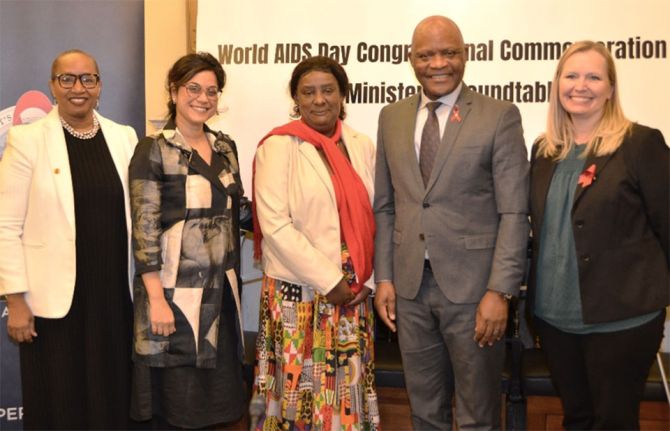
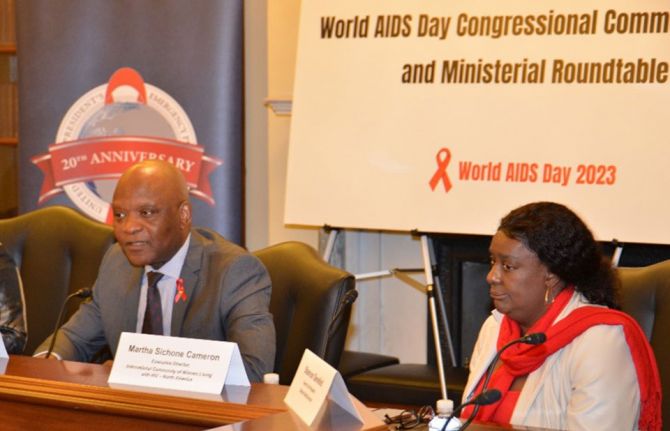


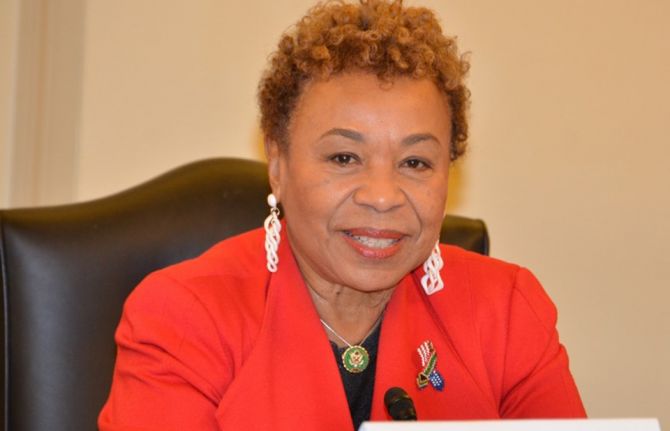
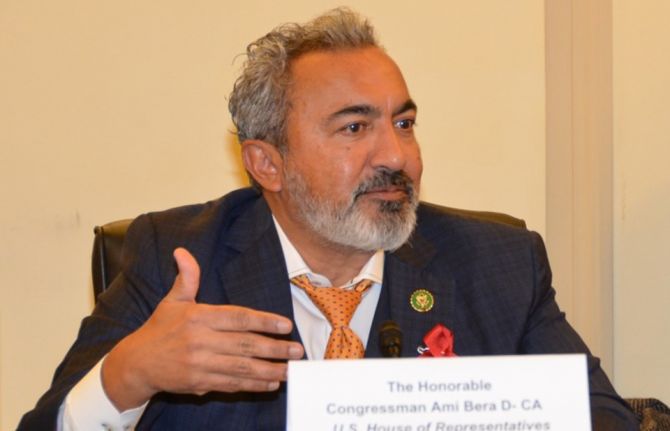

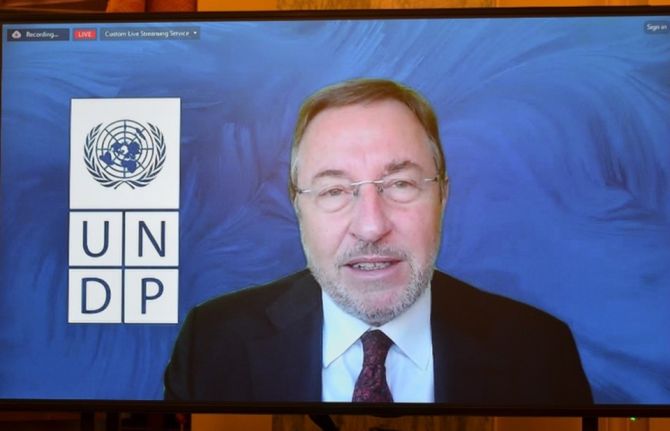
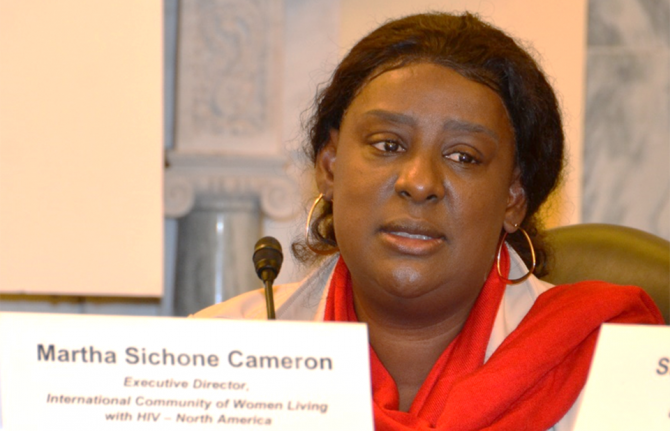
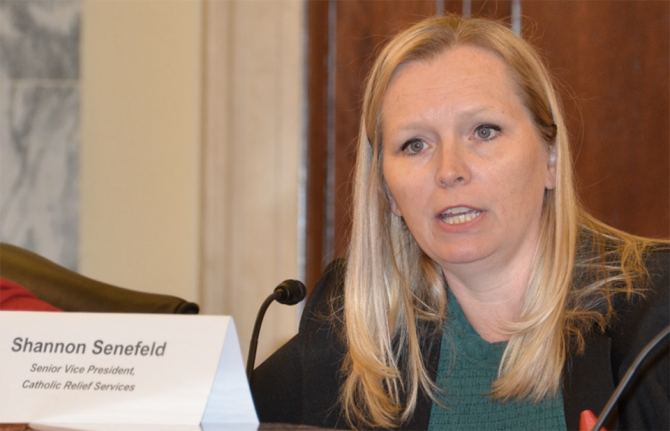
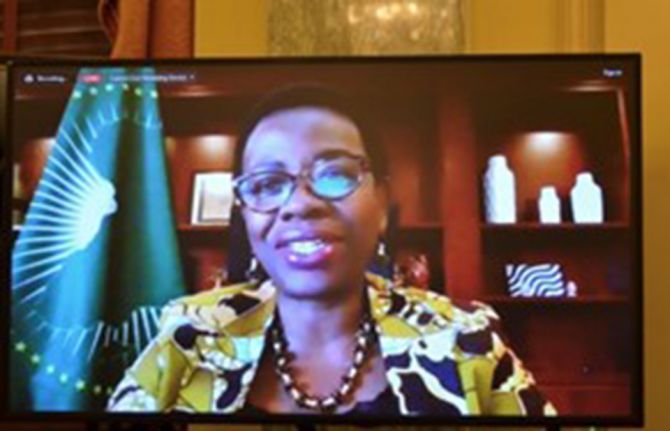
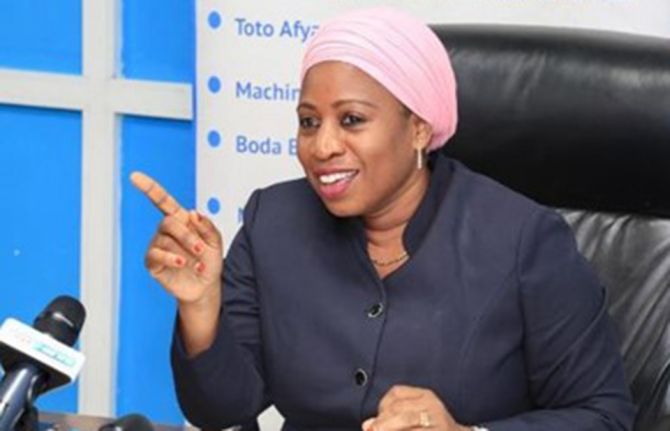
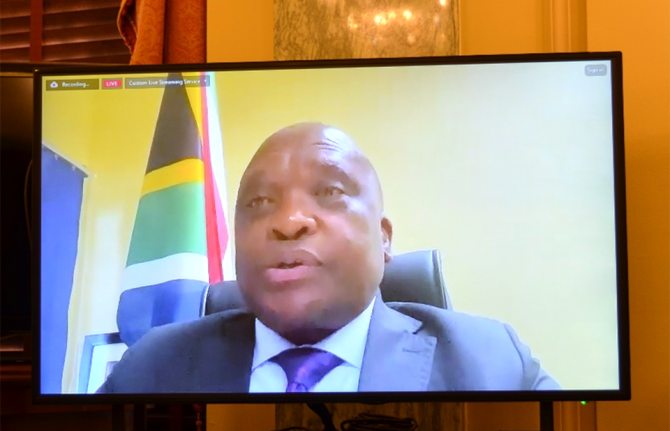


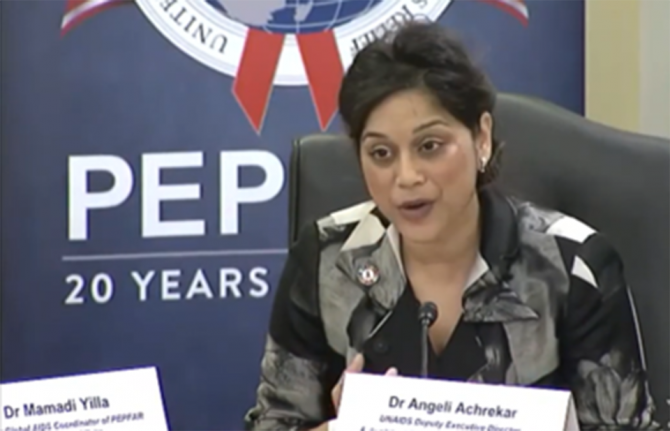
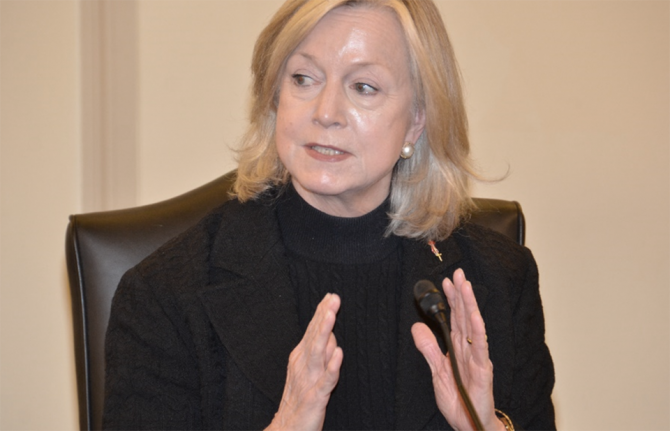
Press Statement
Members of United States Congress and global leaders commemorate World AIDS Day in Washington D.C.
01 December 2023 01 December 2023WASHINGTON D.C./GENEVA, 1 December 2023—UNAIDS, in partnership with the Bureau of Global Health Security and Diplomacy at the US Department of State and Members of US Congress, co-hosted a Congressional Commemoration and Ministerial Roundtable for the 35th World AIDS Day. The event featured bipartisan Members of US Congress who pledged continued support for the reauthorization of PEPFAR, and HIV, health and development leaders, including African Ministers of Health, who recommitted to sustain progress to end AIDS.
“We have to reauthorize PEPFAR. Success must continue,” said Senator Bill Cassidy. “The challenge before us is to continue to use the science and programmatic change to reach new at-risk populations, like mothers and babies. Our goal is to end AIDS, but it is going to be one population at a time.”
Congresswoman Barbara Lee called for a renewed bipartisan effort to reauthorize PEPFAR. “We have the opportunity to see an AIDS-free generation by 2030 and we have to do everything we can do to get there. I continue to work with my Republican colleagues every day to extend PEPFAR on a bipartisan basis. The well-being of millions of people in Africa are on the line.”
Congressman Hakeem Jeffries, Minority Leader of the US House of Representatives, said, “PEPFAR is the perfect example of a life-saving, life-preserving, life-changing program. You have our commitment as the House Democrats that we will continue to work with President Biden and our colleagues on the other side of the aisle to make sure that we secure a robust, strong, lengthy reauthorization of PEPFAR.”
Other esteemed Members of Congress who addressed the event included Representative Michael Lawler, Representative Sara Jacobs, and Representative Ami Bera. They cited powerful country examples of PEPFAR’s success and committed continued bipartisan support for the reauthorization of PEPFAR, demonstrating the importance of US Congressional leadership in the global HIV response.
“PEPFAR has become the gold standard for humanity,” said John Nkengasong, Ambassador-at-Large, US Global AIDS Coordinator and Senior Bureau Official for Global Health Security and Diplomacy at the US Department of State. “We need joint responsibility and joint accountability to end AIDS by 2030. I am hopeful the US Congress will secure a clean, five-year reauthorization of PEPFAR, which will enable us end AIDS.”
“PEPFAR is an illustration of the compassion and leadership of the American people - comparable to the Marshall Plan,” said Achim Steiner, Administrator of UNDP, and UNAIDS Cosponsor. “The multisectoral approach of the global HIV response has been instrumental in helping communities lead and build resilience.”
Global leaders highlighted the life-saving impact of PEPFAR’s contributions. Martha Cameron, Executive Director of the International Community of Women Living with HIV, North America, shared her story. “Had it not been for PEPFAR, I would not be here today. I was on my death bed in Zambia and was told I had very little time to live. I was one of those first recipients. Representing my community of faith-based organizations, I hope that PEPFAR will be reauthorized.”
“Global progress on HIV has been breathtaking, but the job is not yet done,” said Angeli Achrekar, Deputy Executive Director, Programme, UNAIDS. “We must continue our efforts to end AIDS as a public health threat by 2030 and sustain these gains into the future.”
Faith-based organizations have been at the forefront of the HIV response. “Working in Zambia before PEPFAR started, I remember losing friends on a weekly basis,” said Shannon Senefeld, Senior Vice President of Catholic Relief Services. “The programming implemented under PEPFAR has been pro-life. I am hard pressed to think of another example of such a life-affirming program that has been implemented by the US Government.”
The event included a high-level roundtable of leaders from across Africa, highlighting the life-saving impact of PEPFAR on progress in national HIV responses and across the African continent. “We acknowledge the remarkable leadership and collaboration between the African Union Commission, the US Congress, UNAIDS, the Global Fund and others working together to combat HIV/AIDS,” said Monique Nsanzabaganwa, Deputy Chairperson of the African Union Commission. “The African Union welcomes 20 years of US leadership in the fight against AIDS. Let me request that we finish this fight together and we continue this partnership in the next years, leading to 2030 and beyond.”
“In 2003, before PEPFAR was operational, less than 1 000 people in Tanzania were on antiretroviral therapy. Today more than 1.5 million Tanzanians are receiving this life-saving treatment for HIV, mainly because of the support we are getting from PEFPAR,” said Ummy Ally Mwalimu, Minister of Health of Tanzania. “Our appeal to the US Congress is to reauthorize PEPFAR in order to sustain the gains we have achieved.”
“We have the biggest burden of HIV and tuberculosis in the Continent and also in the world,” said Joseph Phaahla, Minister of Health of South Africa. “The partnership and support provided made it possible to roll out 5.8 million people on HIV treatment. We could not achieve this progress without the support of US Congress and ordinary American people. But the coverage of children remains a challenge which we need to close.”
“We acknowledge the support and partnership with PEPFAR, UNAIDS and the Global Fund,” said Armindo Daniel Tiago, Minister of Health of Mozambique. “We have reached the milestone of 2 million people receiving HIV treatment. We rely on the ongoing support of the US Congress, through PEPFAR, to achieve our targets and secure sustainability of the HIV response.”
The full event can be viewed online at: World AIDS Day Congressional Commemoration and Ministerial Roundtable - YouTube
PEPFAR’s latest program results (December 2023) demonstrate the life-saving impact of the program, including:
- Life-saving antiretroviral treatment for 20.47 million men, women, and children
- 1.95 million people to newly enrolled in PrEP to prevent HIV infection
- 327,000 health workers supported to deliver quality HIV-related prevention, treatment and supportive services, and
- 32.5 million men who received voluntary medical male circumcisions to help prevent new HIV infections since 2007.
UNAIDS latest global HIV data indicates that at the end of 2022 an estimated:
- 39.0 million people globally were living with HIV
- 29.8 million people were accessing antiretroviral therapy
- 1.3 million people became newly infected with HIV
- 630 000 people died from AIDS-related illnesses
UNAIDS
The Joint United Nations Programme on HIV/AIDS (UNAIDS) leads and inspires the world to achieve its shared vision of zero new HIV infections, zero discrimination and zero AIDS-related deaths. UNAIDS unites the efforts of 11 UN organizations—UNHCR, UNICEF, WFP, UNDP, UNFPA, UNODC, UN Women, ILO, UNESCO, WHO and the World Bank—and works closely with global and national partners towards ending the AIDS epidemic by 2030 as part of the Sustainable Development Goals. Learn more at unaids.org and connect with us on Facebook, Twitter, Instagram and YouTube.
PEPFAR
The Bureau of Global Health Security and Diplomacy at the U.S. Department of State leads, manages, and oversees the U.S. President’s Emergency Plan for AIDS Relief (PEPFAR). Through PEPFAR, the U.S. government has invested over $110 billion in the global HIV/AIDS response, the largest commitment by any nation to address a single disease in history, saving over 25 million lives, preventing millions of HIV infections, and accelerating progress toward controlling the global HIV/AIDS pandemic in more than 50 countries.
